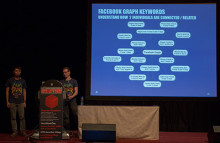Spain demands details of US eavesdropping
Spain on Monday met US Ambassador James Costos, summoned to explain the latest revelations in a growing scandal over the US snooping on telephone and online communications of ordinary citizens and world leaders, including German Chancellor Angela Merkel.
The news emerged as a European Parliament delegation was to begin a three-day mission to Washington to probe the impact of the surveillance on EU citizens' "fundamental rights" and discuss suspending an EU-US agreement on the transfer of bank data in the wake of the scandal.













































































